While looking for something to put on as background noise while doing some tedious online work, I remembered I owned The Matrix Reloaded on DVD. Having no desire to watch the movie, I was curious as to what special features there were. The late nineties and early 2000s were the height of behind-the-scenes documentaries. They were often incredibly revealing. Watch the making-of featurette for The Phantom Menace. It’s surprisingly honest. It shows a lot about George Lucas as a person and his bizarre (unhinged) decision-making( Watch An hour of George Lucas being based.) Nowadays making-ofs are milquetoast non-entities. Watch any Disney-era Star Wars featurette, and it's nothing but the actors and crew repeating how magical everything was and what reverence they have for the material.
The Matrix sequels, being as maligned as they are, piqued my interest as to what kind of features were on the DVD. Lo and behold, the Reloaded contains a commentary track from three critics who really did not like the film. I applaud the Wachowskis for letting this be part of their legacy and would implore more filmmakers to let stuff like this happen.
I was nine when I saw the first film. Naturally, it blew my underdeveloped ignant little mind. It showed me things I had never seen before. The critics on the commentary track point this out: the first film shows things the audience had never seen, and it's really cool, whereas the sequels are full of scenes nobody wants to see because they're so boring, and the first movie naturally skipped over.
It is shocking how many scenes are just flat shots of characters awkwardly standing and exchanging truly banal expository dialogue. It isn't even the waxing philosophical that's overdone; it's scene after scene making this world mundane and ordinary, where the first film worked so hard to make it unique and extraordinary.
Nearly everything about the movie is worse than the first one. The action is no longer exciting, the slow-mo is tired and out of all novelty. Having said all that, there’s a stretch of the film where I started to pay attention and thought I’d accidentally started another movie.
Once the Merovingian is introduced, it's like the movie wakes up and remembers to be fun. There's still all the technobabble and exposition that really doesn't matter, but the actor is having fun and chewing the scenery. On top of that, we get those weird albino twins. Moreover, it's interesting. Nobody really gives a shit about generic, boring humans fighting generic, boring machines. Rightfully so, all of that stuff was just background worldbuilding in the first film, not the main focus. What kind of sick nerd would you have to be to actually know or care about the political and social factions of Zion and the names for all the different type of enemy robots?
Had the movie utilized more fun elements like the Merovingian and his weird crew, it probably wouldn’t be seen as a failure that diminishes the legacy of the first film.
To me, the most shocking part of this whole movie is how lame they made Morpheus. Thanks to Laurence Fishburne's charisma, he added so much gravitas to the character in the first movie. He rode the line between sincerity and camp, but it ultimately worked. In other movies, Fishburne has proven that he's a great actor. Watch King of New York; he steals the entire film and somehow manages to chew the scenery more than Christopher Walken. That's what makes it so baffling that his "epic inspirational speech" to the people of Zion is one of the worst performances I've ever seen. ( Watch Laurence Fishburne embarrass himself for three minutes) Not only is his acting bad, but his intonation and where he chooses to stress words are all over the place. It's like he's reading the script for the first time in real-time as he's delivering the dialogue. I knew something was wrong watching it, even at thirteen. I felt embarrassed for him.
I'm done talking about a movie nobody has thought about in twenty years. Instead, I'll talk about other movies nobody has thought about in twenty years. In general, I want to talk about movies that, while flawed, contain enough goodwill to not be dismissed entirely.
I started to notice a trend around the time The Dark Knight Rises was released. For all the goodwill and praise The Dark Knight accumulated, the follow-up had the opposite effect. People were talking about what a disappointment it was. It was a mess. It was terrible. I went in prepared for disappointment. Was it as good as The Dark Knight? No, but I never really expected it to be. That's a pretty impossible act to follow. My main takeaway was that I saw a movie with incredible practical effects and stunts, enormous set pieces, some weird editing decisions, motives not always being clear, and some scenes being rushed just to connect the dots, but add all the good points with an incredibly fun Tom Hardy performance, I couldn't comprehend how people came away thinking this movie was bad. Therefore, I looked at what complaints they actually had to see if they were valid.
"How did Bruce Wayne get back to Gotham? PLOT HOLE". Not seeing how something happened is not the same as a plot hole. Was it lazy to not show how Bruce Wayne returned from some nebulous foreign country to Gotham? A debate could be had, but it's not a plot hole. Do we always need to see a car pulling into a driveway to know a character has arrived? Can't we just know? To reference The Matrix Reloaded critics’ commentary track again, after the thirtieth shot of a spacecraft slowly landing, one of them asks “Can’t we just know they’ve landed?” Bruce Wayne returned to Gotham. Where was the issue?
Most of the complaints I saw about this movie were about pretty minor things like this. That’s when I realized hyperbole was becoming the new norm with criticism. Don’t even talk to me about hyperbole, I absolutely love hyperbole (but it pisses me off when other people use it). (Me at my most hyperbolic) A movie is either great or the worst thing ever. There is no such thing as a “good” movie anymore. People seemed incapable of looking at individual sums of the whole. Despite all the well-shot action scenes and nice utilization of practical effects over CGI, they were bothered by not seeing how Bruce Wayne returned to Gotham. What a terrible movie.
I recently watched Beau is Afraid.
. Despite being the biggest fanboy of Hereditary, I was in no rush to watch Joquin Phoenix toning down his weirdness for three hours. Well. The first forty minutes are incredible. They are so good they are among my favorite in all of movies. It's weird, scary, captivating, inexplicable, and hilarious. A tired explanation I don't particularly like when describing a movie is to call it "dreamlike." Maybe I'm too much of a simpleton, but David Lynch is hit or miss for me. David Lynch the person I like very much. I often struggle with his movies. People who do love them would usually say, "But they are so dreamlike" or "Mulholland Drive is so good because you don't know what's real and what's a dream." What are you people talking about? No movie is real, goddammit. They're all goddamn dreams. They're all dreamlike. If a movie's only selling point is that it evokes what being in a dream feels like, to that, I say, oh hell nah. It often seems like an excuse for a movie to be devoid of logic or tissue connecting scenes to one another. There has to be something more than that.
Returning to Beau, the first forty minutes capture nightmare logic better than any movie I've ever seen, but it's also really entertaining. Remember Daren Aronofsky’s Mother? Beau is like a good version of that movie. Mother’s issue is once you realize the entire movie is subtext only (I know writers who use subtext, and they’re all cowards) there is nothing left to discover or absorb. It’s a blunt, obvious metaphor. The characters only exist to shove the metaphor down your throat. I’m sure Beau is full of metaphors and symbolism, but even if you don’t look that deeply the first forty minutes still work as pure, visceral entertainment. It really played with my anxiety and put me on edge. Beau, riddled by crippling anxiety, finds himself in scenario after scenario where the worst possible outcome that can happen does happen.
You could tell it was not only deeply personal to director Ari Aster but that he was having a lot of fun with it. Movies that are "dreamlike" don't all have to be boring as shit (looking at you, Tarkovsky).
Had the movie ended at the point where naked Joquin Phoenix is running down the street and gets hit by a car, it would have been flawless. Unfortunately, it carries on for over two hours. Exacerbating the movie's runtime and making it feel nine hours long is that the movie is divided into segments. Any momentum built up from the previous segment deflates and makes it feel like you're starting a new movie every forty minutes. On their own, each segment is good (to varying degrees of quality), but at a certain point, the movie began to try my patience. The segment in the forest went on and on and on. Ari Aster clearly had a lot to say, and the movie is ambitious and unique, but it doesn't all gel together successfully. Some people may draw the conclusion that the movie is, therefore, a failure and not to be recommended. I disagree. I highly recommend it. It's an unwieldy beast of a movie, but I'll take a messy movie with a unique vision over generic slop. Do yourselves a favor and at least watch the first segment.
I’ve probably done more to keep the memory of The Lost World: Jurassic Park alive than anyone else since 1997. In 2025, Jurassic Park has got to be one of the lamest franchises out there that refuses to die. You bastards made dinosaurs suck, but once upon a time, there wasn't endless slop or Chris Pratt, and the hype for a Jurassic Park sequel was real.
Contemporary critiques of the sequel to what, at the time, was the biggest box office movie in history were it lacked the sense of wonder and discovery the first film evoked. In making a movie about bringing dinosaurs back to life, Spielberg brought dinosaurs back to life. That's how it felt. Our awe was shared by the characters on screen. The movie had a profound sense of discovery and childlike curiosity. Add intelligent discussions about the moral implications delivered by charming characters, and the movie has already sold you before the dinosaurs start eating people.
A sequel could never recapture that magic because it'd been done already, but what it could do was be more. More dinosaurs, more kills, more violence, bigger set pieces. Critics felt the movie was shallow and turned dinosaurs into generic movie monsters. In a sense, that is all valid. What baffles me, though, is when Jurassic World came out in 2015, the same people who dismissed The Lost World for being a mindless action movie lacking in wonder were praising the reboot for the same reasons. If I could sum up all the praise in a few words, it would look something like, "While it's not as good as the first film and lacks the intrigue and awe, it delivers enough fun dino action to warrant a recommendation."
Has the bar been lowered that far? Here’s where I jump to the defense of Lost World. It's not as good as the first movie. It doesn't matter why people need to get to Dino Island; they just need to get there, and the movie is in quite a rush to get the obligatory scenes out of the way so they can get to the good stuff. Jeff Goldblum seems like a completely different person. The reason his daughter ends up on the island is convoluted, but because the first movie had kids in danger this one also needs a kid in danger. Having said all that, it still felt like a movie. The characters felt like real people and not Chris Pratt, action man mugging for the camera. Jurassic World feels very much like a corporate product. None of the characters feel like real people, something they share with the dinosaurs in the movie.
Despite not being as good as the first movie, The Lost World delivers in the dinosaurs and the danger feeling very real. The movie is really fucking scary. Before Spielberg started making slop like The Post and Ready Player One, even a movie he made on autopilot still showed all the trademarks of a master of his craft.
From what I heard, Spielberg sleepwalked through the production. He didn’t really give a shit but was obligated to make a sequel. Michael Crichton didn’t even want to write a sequel to the book, but those were some mighty big paychecks
What The Lost World succeeds at is being really fucking tense. The most impressive set piece is when Vince Vaugn (for some reason playing former Los Angeles Laker Nick Van Exel) brings the injured baby T-rex back to the double trailer (one of the coolest toys ever. Jurassic Park was the peak of movie tie-in toys).
Eddie Carr and his action figure (the resemblance is uncanny).
Obviously, Nick Van Exel was much better at basketball than critical thinking, because two huge T-Rexes come to get their baby back.
What follows is a masterclass in tension. The T-Rexes thrash the trailer, leaving it to dangle over a cliff. If that wasn't bad enough, Sarah Harding is atop cracking glass, any movement of which will send her to her doom. At the same time, Eddie Carr, the only member of this group who hasn't made insanely dimwitted decisions, comes to save them. He tries to tow the trailer up with his car. All the while, the T-Rexes return to attack Eddie. Even when his life is in danger, he focuses on saving his team rather than escaping to safety. He pays the price for it in the franchise's most violent and meanspirited death scene. I've already written ad nauseum about how Eddie Carr was done dirty, and I don't have the heart to do it again. (My epic Eddie Carr story )
In any case, this scene is incredible. It's frightening and violent and doesn't have Chris Pratt sticking his hand out, treating velociraptors like trained dogs.
Finally, I want to remind people of Gangs of New York. You've probably watched it once and remembered liking it. What's not to like? Martin Scorsese, violence, impressive sets and costumes. It's a fun movie, but it's pretty incoherent, and the plot meanders until story needs to happen. Daniel Day Lewis carries that movie on his back so superbly it probably makes you remember the movie being better than it was. He just oozes charisma and talent in that film. He's so good it makes it glaring how mediocre DiCaprio is in it.
This was DiCaprio and Scorsese's first collaboration, and I don't know what Scorsese saw to compel him to keep working with DiCaprio because he gives such a nothing burger of a performance here. This is a problem, considering he's our protagonist. Throughout the movie, I'm actively rooting for Bill the Butcher, the murderous, racist nativist, to win because he's so much more compelling. Did anyone really give a shit whether DiCaprio's character achieved any of his goals during the movie?
I am glad Scorsese did continue to work with Di Caprio. Their next collaboration, The Aviator, succeeded where Gangs failed. How unfortunate that it came out between Gangs and The Departed, relegating it to one of Scorsese's least talked about films in recent years. It's fantastic and proved the continuing partnership with DiCaprio wasn't a bad thing.
We should just stop watching movies.

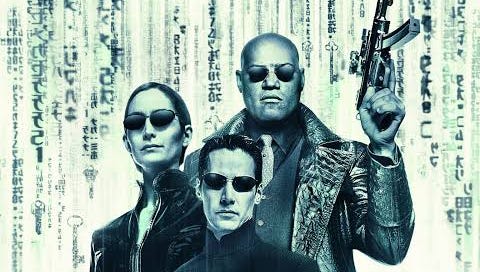



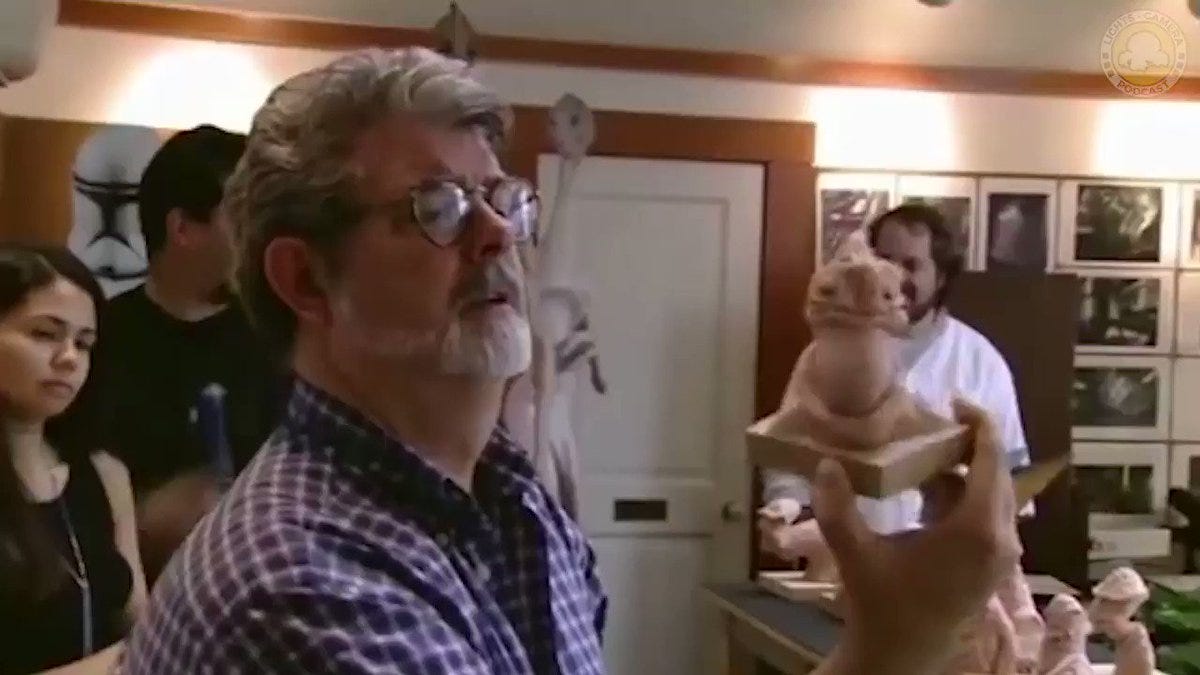
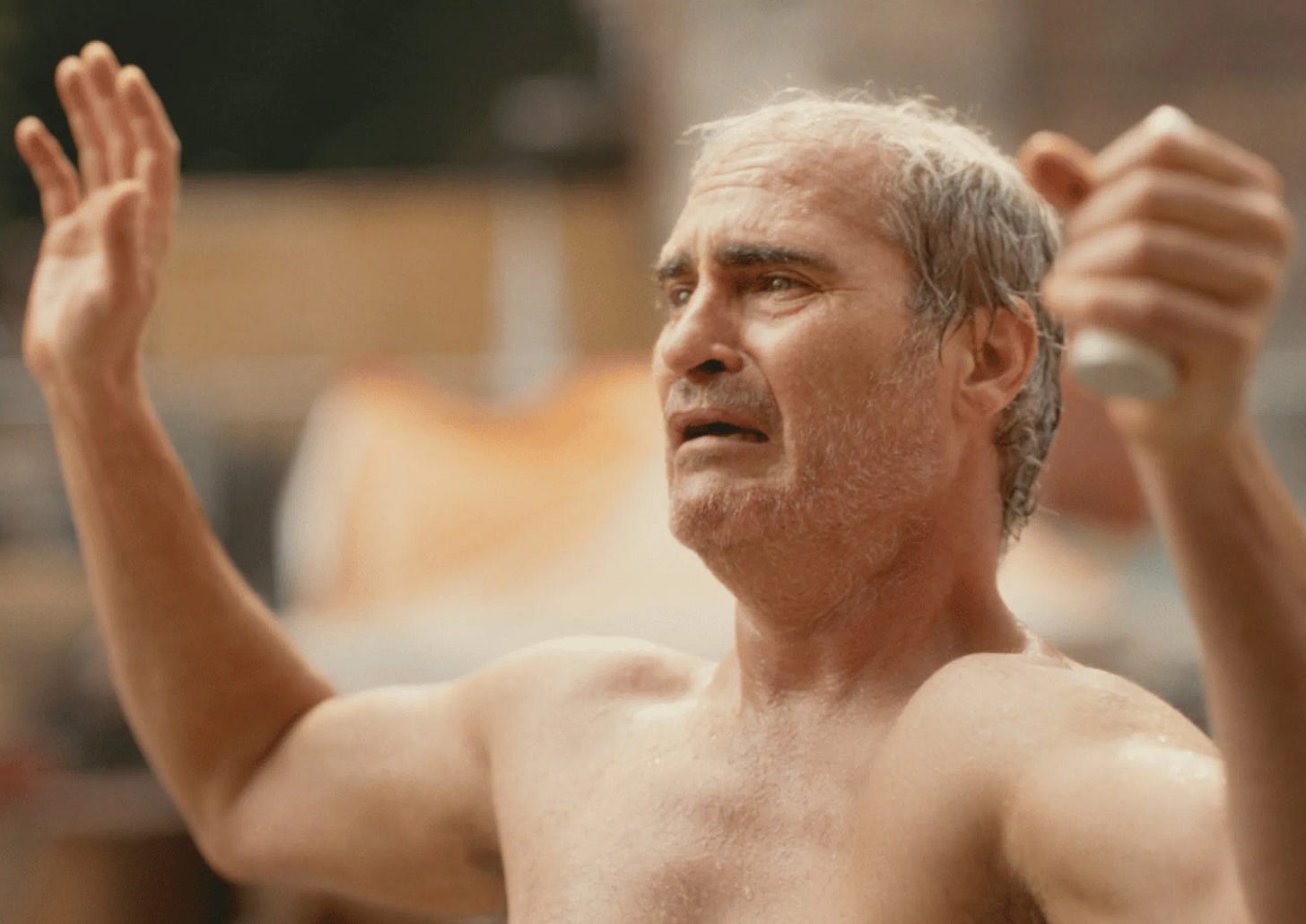
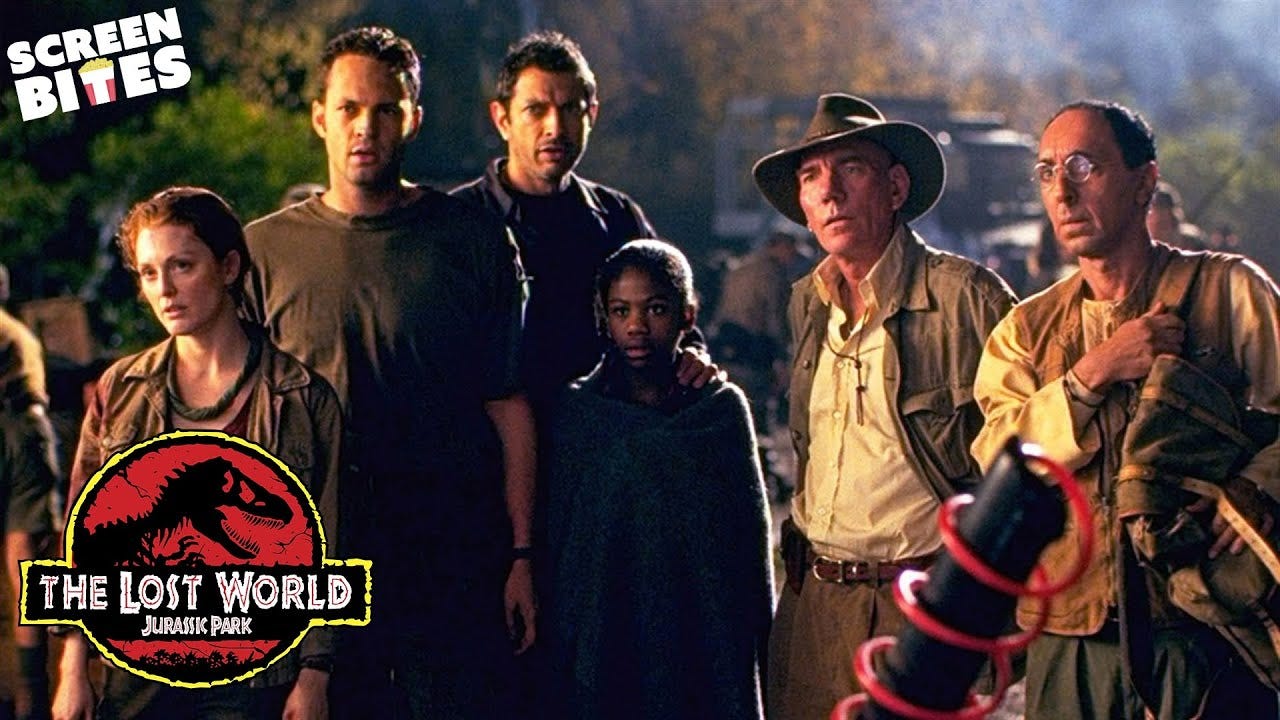
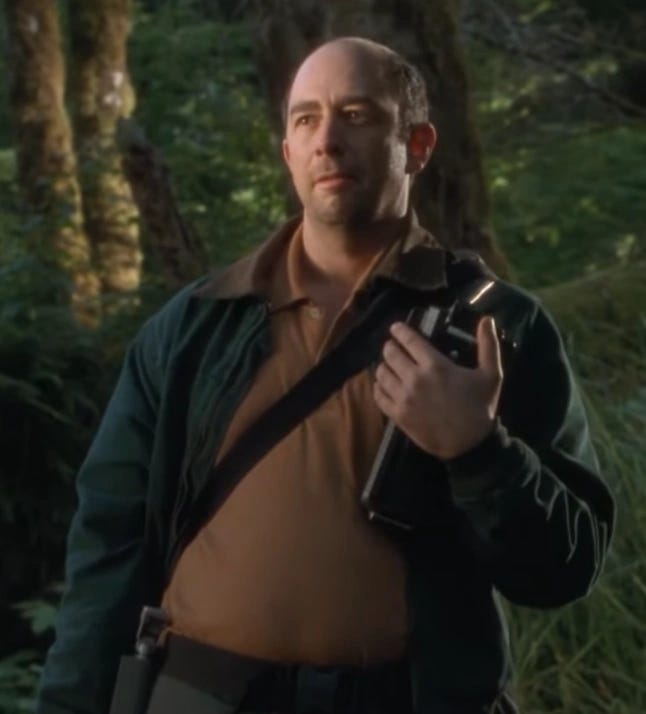

Matrix Reloaded commentary and no mention of Monica Bellucci?!?!
Otherwise great article, I grew up on those movies around the same time as you.
The Matrix (the first one) lost my interest on the second viewing.
What I keep enjoying is that strange scene where Agent Smith explains to Morpheus that the Matrix isn't the first or best version - but a compromise:
The AIs that took over the world sincerely tried to make humans happy, by making a simulated paradise for them - and it failed. The humans instinctively sensed that something was wrong (ah, but wrong in what sense?) and tried to break out of the illusion.
Humans can adapt to anything... except paradise. This isn't a new observation.
Artists and churches have spent a perverse amount of money and imagination to think up ways in which Hell can be awful to the souls of the dead. But how do they depict Heaven? It's reduced to a pamphlet. Even Dante wrote a brief section on Heaven, but seemed unable to stop dwelling on the agonies of Hell.
What happens to the very rich, who can afford all the pleasures of a good life? They get bored, or become workaholics, or get ambitious about political power, or they get chummy with Jeffrey Epstein. They'll do anything but be happy.
It's one of the mysteries of the human condition, neatly condensed in that one speech by Agent Smith.